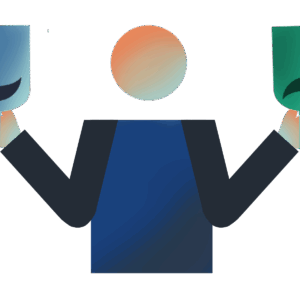Description
Theme 2026: ‘Give Peace a Chance’
The full programme can be found here.
In a time when narratives of war, crisis, and polarization seem increasingly present in Dutch society; in- and out-group thinking and societal tensions seem to be growing, and we hear young people discuss whether they would join military service when “duty calls”, we ask: What would happen if we bring peace to the forefront – not as an abstract ideal or distant foreign policy objective, but as a practical, domestic goal?
This year’s conference is grounded in three reflections. First, metaphors of war and security have permeated the stories we rely on to make sense of problems – from climate change to pandemics, poverty, migration, and social unrest – directly impacting both how we frame them and how we respond to them. As war has become the accepted language for organizing attention, it pushes talking, thinking, and acting on peace to the margins of attention. Second, liberal international peacebuilding efforts continue to face limits and resistance. At the same time, all around the world conflict resolution practitioners and peacebuilders are working hard to foster peace from the bottom up. Increasingly, peacebuilders who return to the Netherlands have pointed out similarities between the societies they’ve worked in and our own and started to think about peacebuilding at home. Finally, there are signs that this move to peace may already be underway in many corners of society, even if we don’t recognize these efforts as such.
A goal for policy and practice at home
We want to put these reflections to the test by invoking peace as a goal for policy and practice at home. We hope to explore how practical initiatives in our society draw on and contribute to peace at home. We want to search for the practical guidance they provide for what it would mean to pursue peace. We pose the question: ‘What do we see when we give peace a chance as a working goal in public life?’ Rather than contrast peace with war, we hope to explore the variety of ways in which we can, and do, practice peace in everyday life and how these efforts strengthen the foundation for a peaceful and democratic society.
This search is not guided by an image of peace as a state of harmony, but by the recognition that in a diverse society, peace is not about erasing differences or enforcing consensus. It is about cultivating the capacity to disagree while maintaining conversation and connection with one another – constructively, creatively, and non-violently. We suggest that democratic peace is less likely to develop out of the exercise of cool reason than from the “heat” of conflict and the practical efforts to address conflict. It is here – in the heat – that we can best imagine coexistence as we work to engage the differences that divide us.
Central questions
You can now buy your ticket to the 8th State of Conflict conference, where we will explore how we as practitioners, academics, policymakers, and civil society actors can practice peace at home in tangible and sustainable ways. The detailed program (available in early November) will address key questions such as:
- How can we make sense of the shifting balance between violence and peace in Dutch society and institutions?
- What is the place for disruption and divisiveness in pursuing peace and how do we work with that?
- What happens when peace becomes more fragile, and what actions contribute to consolidating peace?
- Where do we see peace emerging as a working idea in social and political practices in the Netherlands?
- What does peace look like when it is pursued at this practical level?
- What can we learn from an exchange with practitioners who have worked to build peace and resolve conflicts in foreign settings?
- How do institutions shape the efforts of individuals and groups to take steps that contribute to peace?
- How can innovative ways of organizing democracy contribute to non-violent efforts to address conflicts and deliberate about contentious problems?
- How can conflict resolution practitioners, public officials, and academics help to strengthen peace in our society? What tactics do we already use, and how can we develop them?





